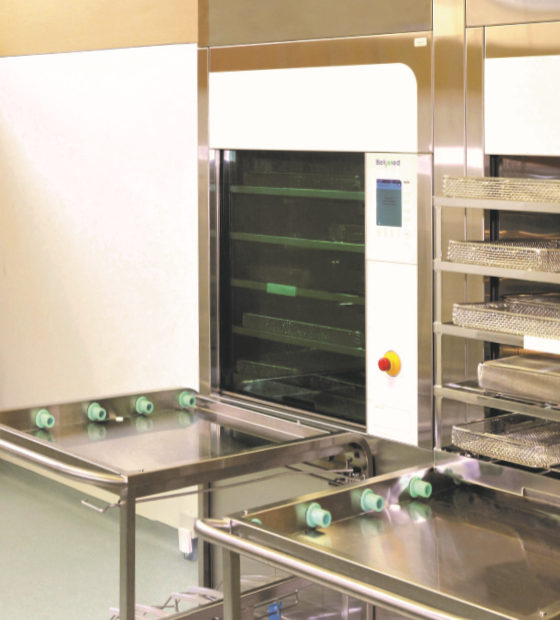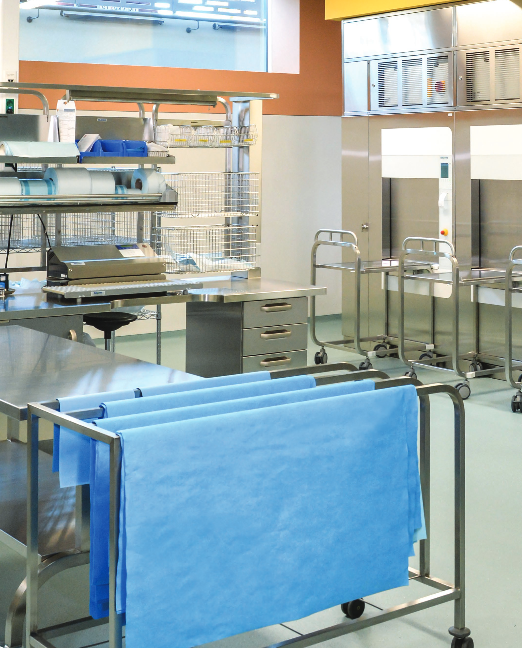 00389 2 3091 484
00389 2 3091 484
Other services
Sterilization
Central sterilization
Central sterilization involves a complex pre-sterilization and sterilization procedures in the treatment of medical devices as a basic prerequisite for aseptic operations.
Reception of medical devices for processing
- standardization of transport and reception of medical devices;
- processing of medical devices;
- treatment of instruments in an ultrasonic bath;
- mechanical treatment of flexible endoscopy;
- mechanical treatment of bottles for aspiration, nebulizer, trays;
- mechanical treatment of surgical instruments, containers, aspiration hoses, baby bottles, medical shoes…;
- documenting the indicators for the procedures;
- charge control with chemical indicators.
- documenting the sterilization procedure.

Preparation of medical devices for sterilization
- ne-sided packaging in foils;
- double-sided packaging in foils;
- packaging in containers;
- packing in towels and crêpe paper.
Closing the foils (two-component laminate film packaging and pure cellulose paper, with an autoclave sterilization and gas sterilization indicator in between), by means of a soldering machine at a temperature of 175°C.
Closing the foils (two-component packagings with a plasma sterilization indicator in between), by means of a soldering machine at a temperature of 135°C.

Sterilization treatment of medical devices
Autoclave sterilization – on steam
- the most suitable;
- the most successful;
- the cheapest.
Formalin sterilization
- low temperature at 60°C;
- work under negative pressure.
Plasma sterilization with H2O2 and high-frequency currency
- safe;
- reliable;
- fast;
- low temperature at 55°C;
- it has no detrimental effect on the environment.
Control of the sterilization procedure
- vacuum test;
- Bovie & Dick-test;
- biological control with 3M Atest biological.
- storage of medical supplies, issuing and transport.
- documentation of the issuance of medical devices.

